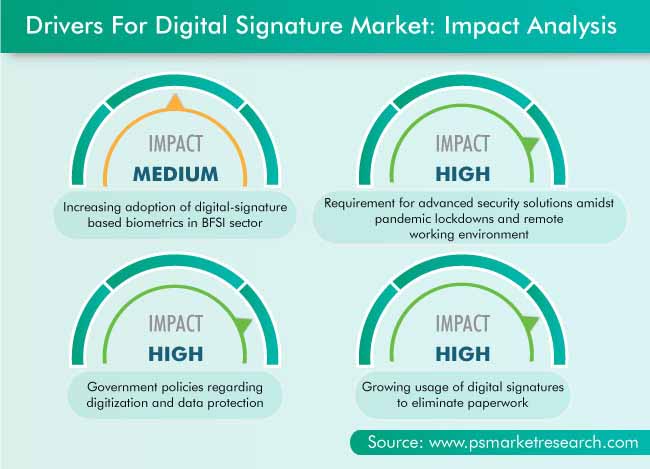Contents
hide
Introduction
In today’s digital-first business environment, software security has become a critical factor in marketing success and customer trust. As cyber threats evolve, developers and organizations must implement robust measures to protect their software and build credibility with users. One of the most effective tools in this ongoing battle is code signing. This comprehensive guide will explore the ins and outs of code signing, its importance in digital marketing, and how it’s shaping the future of software distribution, security, and business growth. For those new to the concept, understanding what code signing is and what types there are on the market is an essential first step.
1. Understanding Code Signing and Its Marketing Implications
Code signing is a cryptographic process that uses a digital signature to verify the authenticity and integrity of software code. From a marketing perspective, this process serves as a trust signal to potential customers, assuring them that the software they’re about to install or run comes from a known and trusted source. In an era where brand reputation can make or break a business, code signing acts as a powerful tool in building and maintaining customer confidence.
The mechanics of code signing rely on public key infrastructure (PKI), involving a code signing certificate obtained from a trusted Certificate Authority (CA). This certificate contains the developer’s public key and identifying information, which is used to create a digital signature for their code. When a user downloads the software, their system uses the public key to verify the signature, providing an additional layer of security that can be leveraged in marketing communications.
There are primarily two types of code signing certificates: Standard Code Signing Certificates and Extended Validation (EV) Code Signing Certificates. From a marketing standpoint, EV certificates offer a higher level of trust and can be a valuable differentiator in competitive markets.
2. The Importance of Code Signing in Digital Marketing
In the realm of digital marketing, trust is currency. Code signing plays a crucial role in building this trust with users. When potential customers see that software is signed by a known entity, they’re more likely to feel confident in installing and using it, which can directly impact conversion rates and customer acquisition costs.
Moreover, code signing helps mitigate security risks by ensuring that code hasn’t been altered after signing. This aspect can be a powerful selling point in marketing campaigns, especially when targeting security-conscious businesses or industries. It demonstrates a commitment to user safety and data protection, which are increasingly important factors in purchasing decisions.
From a user experience perspective, signed code often bypasses security warnings on modern operating systems, creating a smoother installation process. This improved user experience can lead to higher download and installation rates, positively impacting key performance indicators (KPIs) in software marketing campaigns.
3. Implementing Code Signing in Your Development and Marketing Process
When selecting a code signing certificate, it’s crucial to consider both security and marketing implications. For many businesses, a standard certificate from a reputable provider like Digicert SSL certificate offers an excellent balance of security and affordability. The choice of certificate can also be used as a marketing differentiator, especially when opting for higher-trust EV certificates.
Securing your private key is paramount not only for security but also for maintaining brand integrity. A compromised key could lead to reputational damage and loss of customer trust. It’s essential to store it securely, ideally using hardware security modules (HSMs) or secure key management systems.
To ensure consistency and reduce the risk of human error, it’s best to automate code signing as part of your build and release pipeline. This automation can be highlighted in marketing materials as part of your commitment to consistent quality and security.
4. Leveraging Code Signing for Business Growth and SEO
Code signing can have significant implications for search engine optimization (SEO) and overall online visibility. Search engines like Google consider security as a ranking factor, and signed code contributes to a website’s overall security profile. This can potentially improve search rankings, leading to increased organic traffic and business growth.
Furthermore, the absence of browser warnings (which are common with unsigned code) can lead to lower bounce rates and higher user engagement. These improved user experience metrics can positively influence SEO rankings and contribute to better conversion rates.
For businesses operating in or selling to multiple international markets, code signing becomes increasingly important as different regions implement their own data protection and software security regulations. Compliance with these regulations, facilitated by code signing, can open up new markets and create opportunities for global business expansion.
5. The Future of Code Signing and Its Impact on Digital Marketing
As the digital landscape evolves, so too will code-signing technologies and practices. Emerging technologies like blockchain are being explored for their potential to create decentralized trust systems for code signing. This could lead to new marketing narratives around transparency and distributed trust.
Artificial intelligence could play a role in enhancing code signing by providing more sophisticated methods of detecting anomalies or potential security risks in signed code. From a marketing perspective, this could be positioned as an advanced layer of protection for customers.
As quantum computing advances, the industry is moving towards quantum-safe cryptographic algorithms to ensure long-term security for code signing. This shift could provide forward-thinking companies with a competitive edge in marketing their software as “future-proof” and highly secure.
6. Code Signing as a Competitive Advantage in Digital Marketing
In an increasingly crowded digital marketplace, code signing can serve as a powerful differentiator for businesses. By prominently displaying code signing certificates and educating customers about their significance, companies can position themselves as leaders in security and transparency. This can be particularly effective in industries where data protection is a prime concern, such as finance, healthcare, or e-commerce. Marketing campaigns that highlight the use of advanced code signing practices can appeal to security-conscious consumers and businesses, potentially leading to increased market share and customer loyalty. Moreover, the use of code signing can be incorporated into broader narratives about corporate responsibility and commitment to customer safety, further enhancing brand image and trust.
Conclusion
Code signing has become an indispensable tool not only in the software development and distribution process but also in digital marketing strategies. By verifying the authenticity and integrity of code, it plays a crucial role in maintaining security, trust, and brand reputation in our digital ecosystem. As cyber threats continue to evolve, so too will code signing technologies and practices. Businesses that prioritize robust code signing practices will be well-positioned to meet the security challenges of the future, ensuring their software remains trusted and secure in an increasingly complex digital landscape.
For businesses looking to implement or improve their code signing processes and leverage them for marketing success, resources like CyberSSL’s code signing solutions offer comprehensive guidance and tools to get started. Whether you’re an individual developer or part of a large organization, investing in proper code signing is an investment in the security, marketing effectiveness, and overall success of your software and business.



